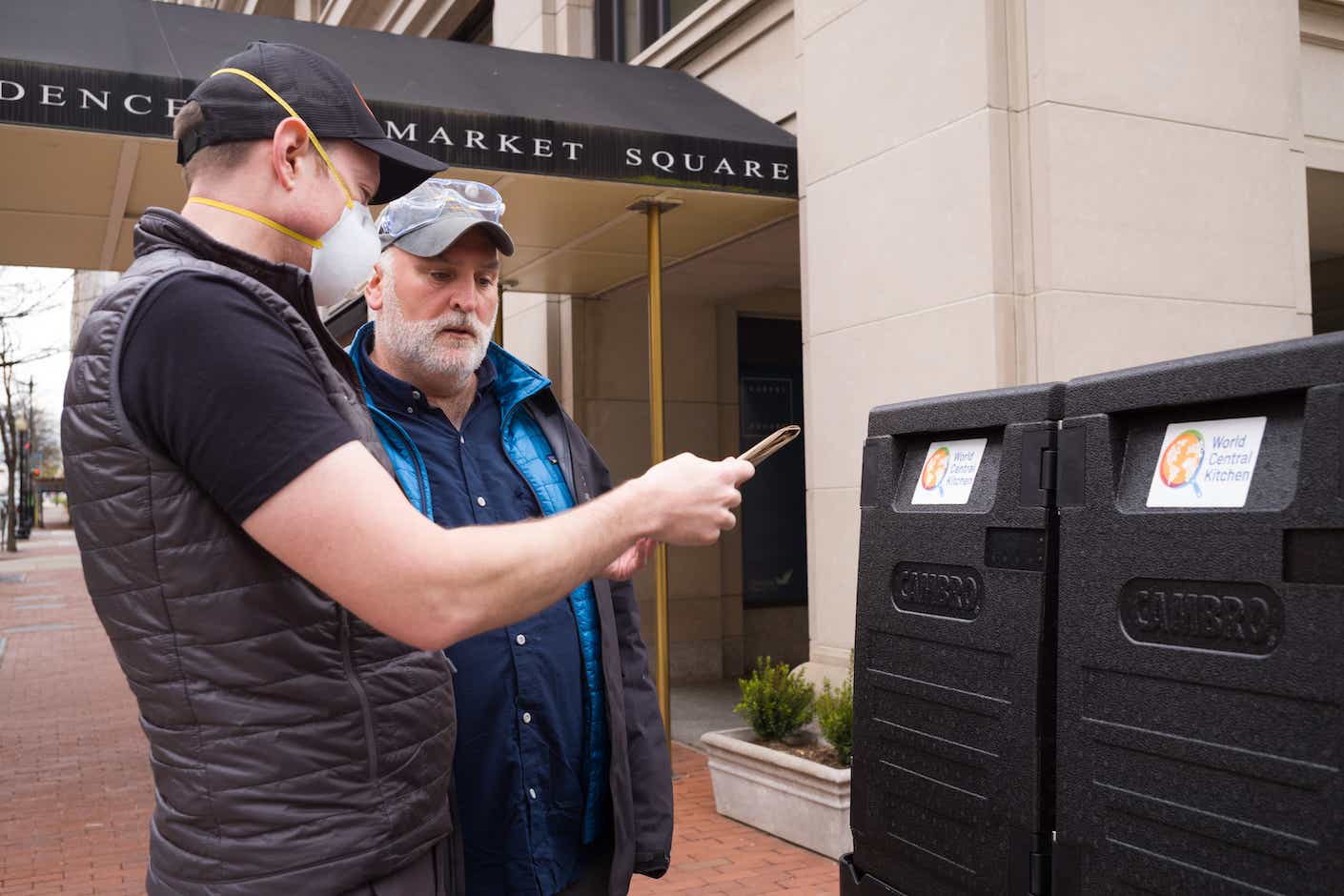Driven by record unemployment levels and lapses in government aid, the coronavirus pandemic has exposed the cracks of a neglected part of America’s infrastructure: its food system. Although private organizations like World Central Kitchen have worked tirelessly to distribute meals to those in need, the hunger crisis has only worsened since the pandemic began — hitting its worst point around Thanksgiving, per a Washington Post analysis.
We talked to Nate Mook, the CEO of World Central Kitchen who works closely with founder José Andrés, about what the organization is doing during the Christmas season, what policy changes need to be made to reduce food insecurity in the U.S., and how Americans can help their neighbors if they’re in a position to.
Wake-Up Call: The pandemic continues to rage on. As lockdowns begin again, could you describe what you’ve been seeing on the ground in America as millions continue to experience food insecurity?
Nate Mook: We’re seeing a worsening of the situations we’ve seen all year: families lining up for food, elderly folks needing support that their government can’t give them, restaurants shuttering because they can’t survive the shutdowns. We’ve also seen the amazing stories of communities coming together to support themselves, and chefs and volunteers working to keep their neighbors fed. It’s been a long, hard year for all of us, but we’ve been fortunate enough to see the best of humanity come through.
Where are you focusing your efforts during the holidays?
We are expanding our efforts to reach more communities once again — not to our peak, but we’re working in another dozen cities due to some new funding we received. We want to make sure that families don’t go hungry through the holidays and into the new year. And as winter sets in, we want to help restaurants survive as much as possible by expanding Restaurants for the People — more and more cities are restricting indoor dining just as the cold makes outdoor dining impossible, so we want to do what we can to help them through.
This question is two-fold. José recently wrote a very powerful Washington Post op-ed about hunger in America. What short-term solutions do we need to implement to fix this issue? And now that we’ll soon have a new administration, what longer-term solutions do we need to embrace?
In the short-term, Congress unfortunately missed a huge opportunity to support the work we’re doing by not passing the FEED Act, which would allow restaurants to support their communities in the model of Restaurant for the People.
Hopefully with a new administration in place we have another chance to get it passed, but at least there were some small efforts — like increasing SNAP benefits — to make sure more families don’t go hungry.
In the long term we need a whole lot more: a permanent increase in SNAP, support for small farmers and healthy fruits and vegetables. We also need more protection for our farmworkers and food processors. Basically, we need to build a stronger, more resilient food system.
In general, how do all of us need to change the way we look at hunger in this country?
We need to look at hunger as an American crisis – one out of six adults in households with children don’t have enough to eat every day, and it’s getting worse and worse as the pandemic rages on.
As José would say, we need to look at how food is connected to everything — agriculture, of course, but also national security, public health, the local and national economy. If we approach it in an interconnected, holistic way, we’ll have the opportunity to find large, sustainable answers.
How can the average person help out right now if they’re able to?
There are lots of ways to help out! If you can, donate to organizations like WCK that are serving fresh meals or your local food bank providing grocery items.
Get out and volunteer — safely, of course. Distribute meals to families in your community over the holidays. Ask your family to make donations to organizations you trust instead of gifts, if they can afford it. And keep telling your elected officials that the burden to feed our neighbors shouldn’t be on philanthropy — it is the duty of our government to make sure that not one single American goes hungry this holiday season, or ever again!
Written and reported by staff writer Amanda Svachula.
This interview has been edited and condensed.









